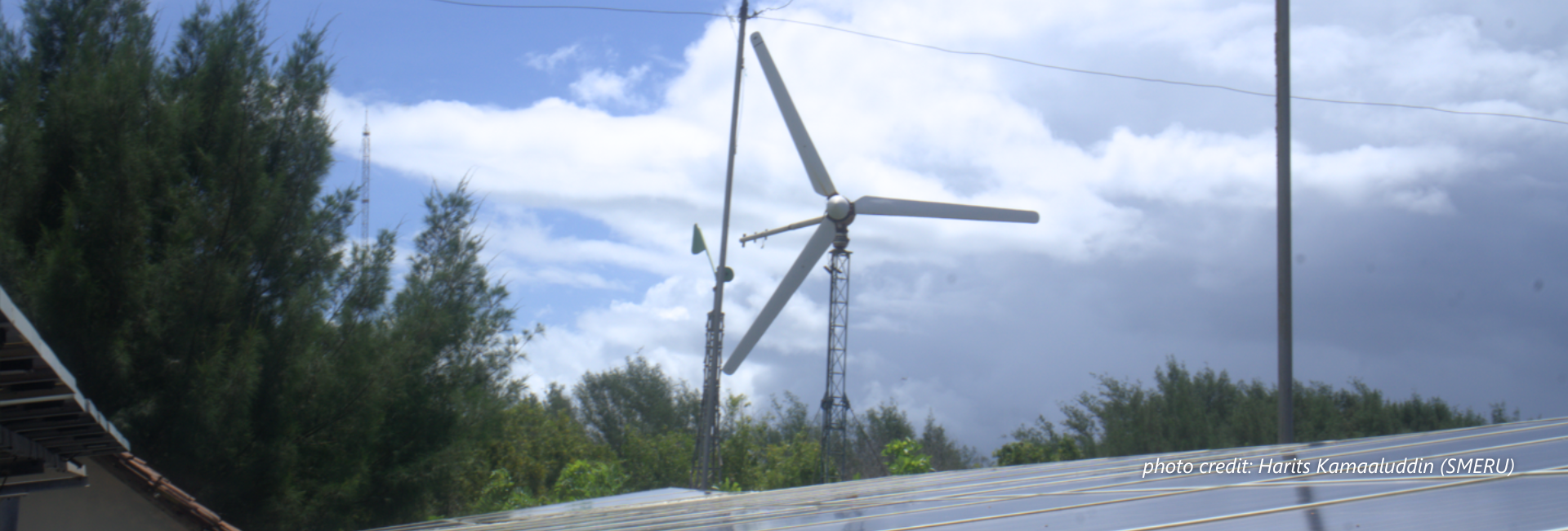Climate change poses a significant threat to Indonesia. A 2012 SMERU study indicated that coastal regions are highly susceptible to climate change, with poor communities being the most vulnerable. The government has endeavored to reduce greenhouse gas emissions by increasing the utilization of new and renewable energy sources (NRE) to 23% by 2025. Nevertheless, NRE usage remains relatively low, at just 14.11% in 2022.
To expedite the energy transition, it is imperative to involve local governments. This engagement is operationalized through the Memorandum of Understanding (MoU) between the Ministry of National Development Planning (PPN)/Bappenas and seven provincial governments (South Sulawesi, Central Java, West Java, West Papua, Papua, Bali, and Riau) on The Regional Low Carbon Development Plan and Presidential Regulation no. 11/2023 on Additional Concurrent Governmental Affairs in the Energy and Mineral Resources Sector in the New Renewable Energy Subsector. This allows local governments to actively participate in the energy transition agenda, with their capacity to play this role being crucial for a just energy transition.
This study will address two primary issues: improving the harmonization of energy transition governance in Indonesia and ensuring just energy transition at the regional level. Currently, energy transition governance lacks a clear direction, with each government sector pursuing different objectives. The active engagement of local governments in promoting energy transition is still constrained, with just about 18 provinces having developed Regional General Energy Plan (RUED).
Through this project, SMERU will identify governance strategies to enhance the capacity of local governments to achieve a harmonious and holistic energy transition aligned with the national strategy, all within the framework of inclusive economic development.
To realize these objectives, the project is divided into two key activities:
- Developing the Energy Transition Toolkit. This toolkit can guide local governments in the formulation, implementation, and budgeting of just energy transition.
- Developing an index related to environmental sustainability into the Inclusive Economic Development Index (IPEI). The development of this index seeks to integrate environmental sustainability indicators into IPEI.
This project employs quantitative and qualitative methods.
The process of crafting the Energy Transition Toolkit includes the following activities:
- Literature review
- Focus group discussions (FGD) and interviews with national and regional experts to seek views on the implementation of energy transition in Indonesia, both at the national and regional levels, especially regarding challenges, support, and institutional aspects
- National policy dialogues
- Consultations with stakeholders at the regional level
- Toolkit development and testing
The process of developing the index within IPEI includes the following activities:
- Literature review
- Iterative stakeholder engagement
- Expert consultations involving in-depth interviews and FGDs
- Index calculation that includes environmental sustainability indicators for national, provincial, and district/city levels



